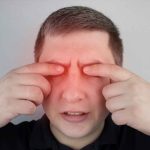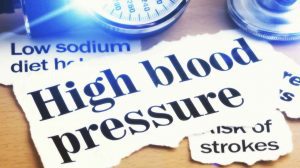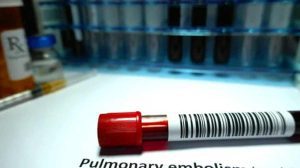Amnesia or memory loss is a disorder that causes a person to be unable to remember facts, information, or events that they have experienced. Even though it is mild, memory problems due to amnesia can also interfere with the lives of sufferers.
Amnesia is characterized by the loss of some or all of the sufferer’s memory. However, people with amnesia generally can still remember their identity, it’s just that they tend to have difficulty remembering new things or remembering past events.
Amnesia is often associated with dementia , but the two are different conditions. Amnesia refers to a condition of memory loss which can be temporary or permanent, while dementia is a disturbance in memory as well as a decrease in cognitive function.
Causes of Amnesia
Amnesia is caused by damage to parts of the limbic system in the brain. The limbic system is the part that plays a role in regulating one’s memory and emotions.
Damage to the limbic system can be caused by any of the following conditions:
- Strokes
- Head injury, for example due to an accident
- Encephalitis or inflammation of the brain
- seizures
- Brain tumor
- Degenerative brain disease, such as Alzheimer’s disease or dementia
- Habit of consuming alcoholic beverages in the long term
- Consumption of certain drugs, such as benzodiazepines and sedatives
- Decreased oxygen supply to the brain, for example due to carbon monoxide poisoning , respiratory problems, or heart attacks
- Psychological trauma, for example as a result of sexual harassment
Amnesia Symptoms
The main symptom of amnesia is loss of past memories or difficulty remembering new things. Based on the symptoms that appear, amnesia can be divided into several types, namely:
Anterograde amnesia
This type of amnesia makes it difficult for sufferers to form new memories. Memory impairment experienced by sufferers of anterograde amnesia can be temporary, for example after someone consumes alcoholic beverages. However, this type of amnesia can also be permanent if there is damage to parts of the brain.
Retrograde amnesia
In this condition, sufferers cannot remember information or events in the past. This disorder can begin with the loss of newly formed memories, then progress to the loss of older memories, such as childhood memories.
Temporary global amnesia
Global amnesia while still not fully understood. However, memory loss in this condition is usually mild and temporary. When experiencing this type of amnesia, the sufferer will feel confused or anxious that comes and goes and repeats.
Infantile amnesia
Infantile amnesis is a condition that causes a person to be unable to remember events that occurred in the first 3 to 5 years of life. This condition is also called childhood amnesia.
When to see a doctor
Check with your doctor if you experience memory loss, especially if it interferes with your daily activities. Examination from the start is needed to find out the cause of the complaint that is felt.
People with amnesia may not be aware of their condition. If you notice symptoms of amnesia in a person, you should immediately take him to the doctor. Examination needs to be done immediately if he experiences sudden memory loss, especially after a head injury .
Amnesia Diagnostics
The doctor will ask questions and answers about the symptoms experienced by the patient, medical history, and medications that the patient is taking or has ever taken. If the patient has difficulty answering the questions asked, the doctor will conduct a debriefing with family members or relatives of the patient.
In addition, the doctor will also carry out a thorough physical examination, including a neurological examination (nervous system function).
To confirm the diagnosis, the doctor will recommend the patient to carry out a series of the following supporting examinations:
- Cognitive tests, to check the ability to think and remember
- Blood test , to detect infection in the brain
- MRI or CT scan , to see damage, bleeding, and brain tumors
- Electroencephalogram (EEG), to detect electrical activity in the brain
Amnesia Treatment
Amnesia treatment aims to improve memory impairment and treat the underlying cause of amnesia. Treatment methods that can be done include:
Drugs
Until now there is no drug that can restore the memory of amnesia sufferers. However, doctors can provide medication to treat the underlying cause of amnesia. Vitamin supplements are also sometimes given to prevent further damage to the nervous system.
Occupational therapy
Patients will be advised to undergo occupational therapy . This therapy aims to help patients recognize new information and utilize existing memories.
Use of tools
The use of assistive devices, such as smartphones , telephones, and electronic agendas, will help patients remember their daily activities.
In addition, notebooks and photographs, such as photos of places or photos of people, can also be used by patients to remember events or people around them.
Amnesia Complications
Amnesia can interfere with the sufferer’s daily life. If it occurs continuously, this condition can cause a decrease in quality of life. Sufferers may experience difficulty at work, school, or socializing due to this condition.
If the amnesia is severe enough, some sufferers even have to receive supervision or stay in a rehabilitation institution.
Amnesia Prevention
Amnesia is caused by damage to the brain. The best way that can be done to prevent amnesia is to avoid injury and interference with the brain. Here are some things to do:
- Do not consume alcoholic beverages in excess
- Wear safety equipment when driving, such as a helmet when driving a motorcycle or a seat belt when driving a car
- Eat a balanced nutritious diet and maintain an ideal body weight to avoid stroke
- Carry out routine checks to the doctor if you have an infectious disease in order to reduce the risk of spreading it to the brain
- Seek medical attention right away if you have symptoms of a stroke or brain aneurysm , such as a severe headache, numbness, or paralysis on one side of the body












Add Comment